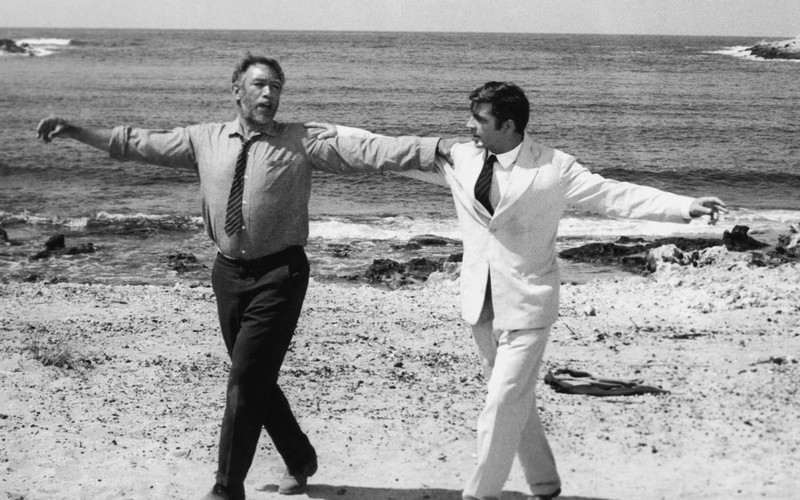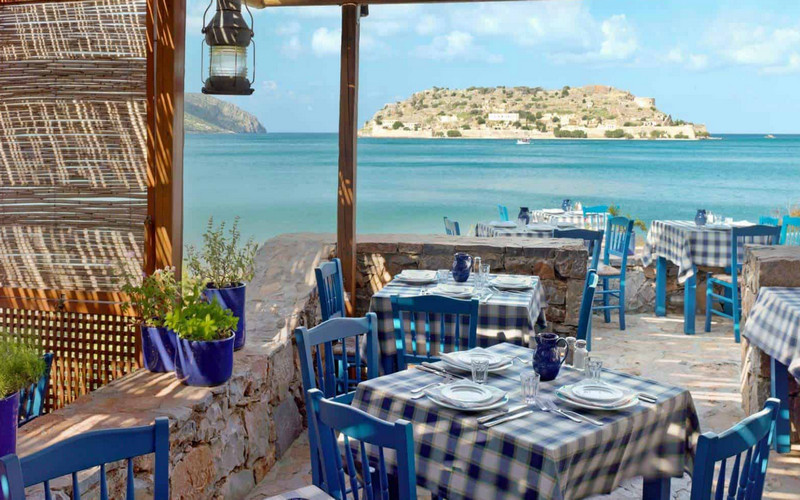While stereotypes can sometimes have a grain of truth, they often oversimplify and misrepresent the diverse reality of a nation. In this article, we’ll explore the top 10 Greek stereotypes and separate fact from fiction.
1. Zorba the Greek: The Dance-Obsessed Greek
Stereotype: Many people assume that Greeks spend their days dancing to traditional Greek music and smashing plates.
Reality: While Greece has a lively dance culture, not every Greek person is a Zorba in the making. Traditional dances, like the syrtaki, are often performed at special occasions, but Greeks have varied interests and daily lives similar to people in other countries.

2. Lazy Mediterranean Lifestyle: The Siesta-Loving Greek
Stereotype: Greece, like other Mediterranean countries, is often associated with a laid-back lifestyle that revolves around long siestas and leisurely afternoons.
Reality: Greeks work hard and have a strong work ethic. While a siesta or a relaxed meal with family is cherished, modern life has brought about changes in daily routines, with many people working full-time jobs.

3. Greeks and Their Olive Oil Obsession:
Stereotype: It’s widely believed that Greeks use copious amounts of olive oil in every meal, and they even use it as a beauty treatment.
Reality: While Greece is one of the world’s top producers of olive oil, not every meal is drenched in it. Greeks use olive oil for cooking and dressing salads, but they also enjoy a wide range of other ingredients in their cuisine.

4. Ouzo and Plate Smashing: The Party-Animal Greek
Stereotype: All Greeks are presumed to be heavy drinkers who can’t resist ouzo and love smashing plates in raucous celebrations.
Reality: While ouzo is a popular drink in Greece, not every Greek person consumes it excessively. Plate smashing is a practice more commonly associated with tourist-oriented events rather than everyday Greek life.

5. All Greeks Are Taverna Regulars:
Stereotype: People often think that Greeks exclusively dine at traditional tavernas and rarely eat home-cooked meals.
Reality: While tavernas are an integral part of Greek culture, Greeks also enjoy cooking at home. The family unit is highly valued, and home-cooked meals are cherished occasions.

6. The Greek Worrywart:
Stereotype: Greeks are often stereotyped as being overly superstitious and prone to worrying about the evil eye and other curses.
Reality: Like many cultures, Greece has its superstitions, but not every Greek person is consumed by these beliefs. Many modern Greeks view these traditions with a mixture of cultural pride and skepticism.
7. Greek Financial Mismanagement: The Debt-Ridden Greek
Stereotype: Greece is frequently portrayed as a country plagued by financial mismanagement, with Greeks perpetually facing economic crises.
Reality: While Greece has faced economic challenges, it’s important to remember that the country has a resilient and hardworking population. Greek society has also undergone significant reforms in response to these challenges.
8. Greek Coffee Breaks: The Coffee-Drinking Greek
Stereotype: People often assume that Greeks spend an inordinate amount of time sipping strong Greek coffee in cafes.
Reality: Greeks do love their coffee, but so do many other cultures. Coffee breaks are a common social activity, but they don’t necessarily dominate daily life.

9. The Big Fat Greek Wedding: All Greeks Love Lavish Weddings
Stereotype: Greeks are thought to throw extravagant weddings with enormous guest lists, costing a small fortune.
Reality: While Greeks do value elaborate weddings, the size and style of a wedding can vary widely depending on personal preferences and financial means. Not every Greek wedding is a lavish affair.
10. Greeks Love Breaking Plates at Celebrations:
Stereotype: People often associate Greek celebrations with the smashing of plates in exuberant displays of joy.
Reality: While plate smashing is a part of Greek culture, it’s not a regular occurrence at every celebration. It’s more often seen in performances for tourists rather than authentic Greek gatherings.

Greek stereotypes often miss the mark by oversimplifying a rich and diverse culture. While some elements of these stereotypes are grounded in tradition, they don’t accurately represent the daily lives and experiences of all Greeks. Like any culture, Greece is a complex tapestry of traditions, values, and modern realities that go beyond clichés. To truly understand Greece, one must delve deeper and appreciate the depth of its history and the diversity of its people.





